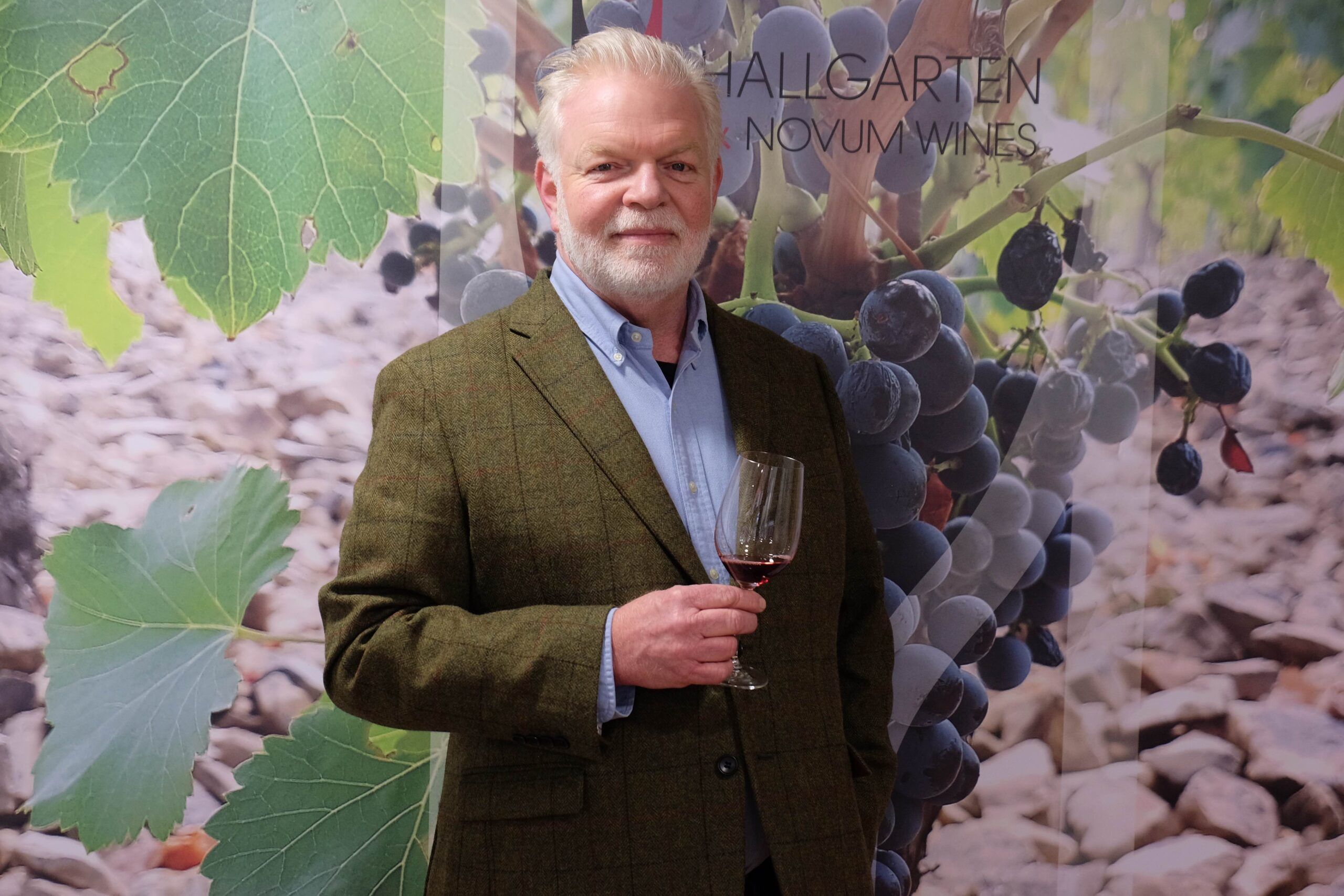How wine and drinks distributors are building strong partnerships with their producers and customers is the key to future success, argues Hallgarten’s Andrew Bewes.
It’s perhaps not surprising that Andrew Bewes does not want to share too many secrets about what has made Hallgarten & Novum Wines the most decorated wine distribution business in the UK – at least for 2023 that is. But it is hard to argue with what could be dubbed as the wine suppliers equivalent of winning the “treble” with the three major awards it has won this year for its overall business operation.
In fact, Bewes argues there are not really many secrets to its success other than doing what it does to the very best of its ability. Which effectively means sourcing the best quality, and value for money wines it can from a long standing and loyal portfolio of producers around the world, and then having a network of experienced sales, brand and development teams capable of going out and building relationships with a wide range of customers that it can then sell its wines to.
All sounds rather simple really, but that’s the key. Getting the basics right and then going from there.
Keeping it simple
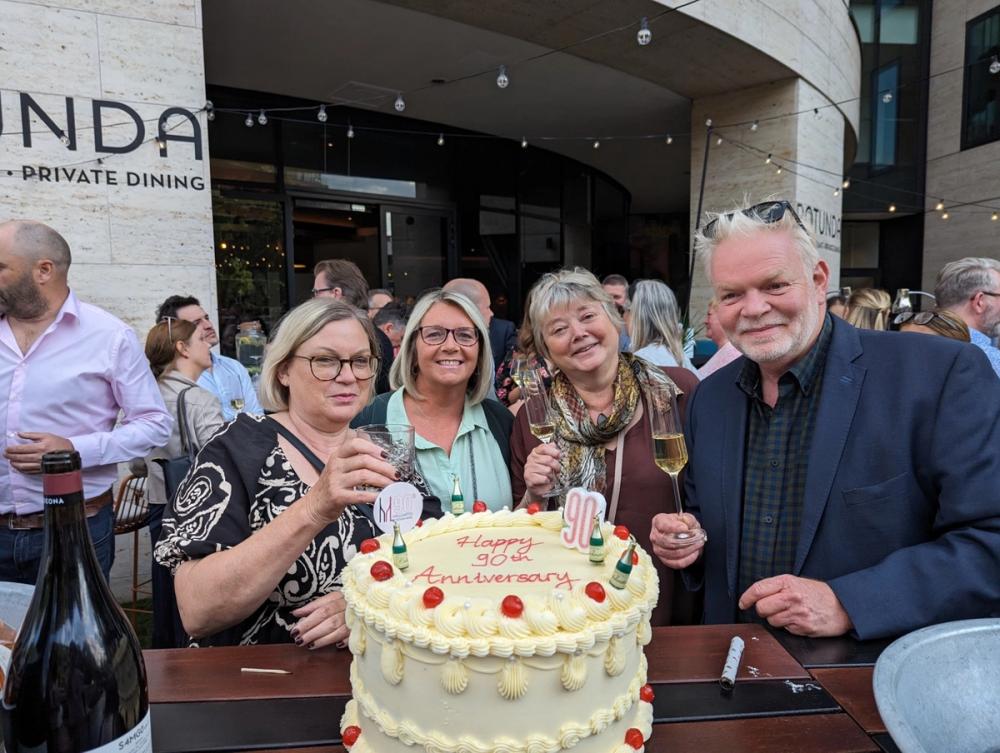
Hallgarten & Novum Wines has been celebrating its 90th birthday in 2023 by winning a stack of industry awards
It’s a similar mantra to the straightforward “pass and move” football philosophy you used to hear the various managers coming out of Liverpool’s much heralded “Boot Room” repeat when they were asked to share their “secrets of success”. Play “pass and move” football and the rest will look after itself.
Now clearly, there is a lot more to running a successful national wine distribution business than buying and selling wines and getting them to their customers on time, but it is the basis on which everything else can be built, stresses Bewes.
Whilst delighted to have won such prestigious awards in its special anniversary year, Bewes is certainly not basking in the glory and looking down on its competition. Far from it. He knows how important it is for the industry as a whole for its top major national distributors to be firing at the top of their game.
“We don’t want to see our major competitors going through the problems they have been going through – we need a strong and vibrant trade.”
That said, he admits, the major awards are “very well timed coming in its 90th year,” but questions whether as a business it is doing anything radically different to get such success.
“We are getting better every year, as one would hope, but have basically been doing the same thing for quite a long time which is good for our customers,” he says. “We also know where we want to go and there is always room to improve.”
The biggest challenge and opportunity for distributors of the scale of Hallgarten is how quickly they can “transition” from being a straightforward supplier to a genuine partner in business, argues Bewes.
“That has been really important for us,” he says. “Now we are thinking about what more we can do to help our customers sell.”
A key factor in Hallgarten’s success is also about how much it has changed internally in recent years. Bewes says moving to a new, bespoke office has really helped give the company the focus and clarity it needed.
Sustainability drive

Working together on a collective strategy to tackle the company’s environmental impact throughout its supply chain has been a key factor in Hallgarten’s recent success
As has its company-wide commitment to driving sustainability right through the business and ensuring all members of staff have their own key role to play. It is interesting that Bewes repeatedly talks about the need “to push ourselves as individuals and as a business to behave responsibly”. Re-emphasising the fact this has to be a full team effort if Hallgarten is going to achieve, if not surpass, its sustainability goals.
Bewes admits it is a “tough call” to be truly sustainable when you are shipping wine from some 24 countries and “the last mile is still pretty horrific when it comes to cost to the environment”. But it “has really brought the company together.”
It also means having some tough, but well meaning conversations with its producers for them to take the steps to be as sustainable as possible – made harder by the fact there is no set accreditation or body that you can point to set the rules for them to follow.
Which has ultimately meant Hallgarten has set out to create a sustainability policy and set of standards of its own – the Hallgarten Eco Standard.
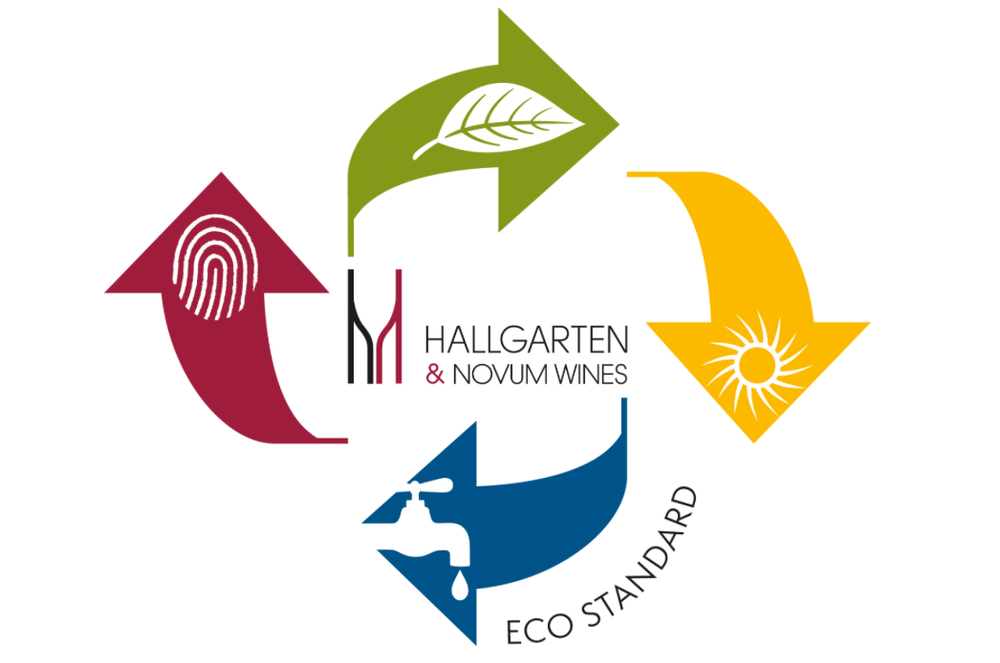
Hallgarten has set out its environmental strategy, its goals and how it is going to achieve it in its Eco Standard paper which you can read by clicking here
“By doing it ourselves I mean establishing a platform that we are happy with, that our suppliers can sign up to and that brings everything on to a level playing field,” he explains.
In order to do that it sent out a sustainability questionnaire to all its supplier base with around 100 questions on different aspects of environmental and social responsibility to assess where the strengths and weaknesses amongst them were and how can they be assessed and encouraged in the future to take the necessary steps forward.
The social responsibility aspect of its questionnaire was particularly important, stresses wine buyer, Beverly Tabbron MW, to ensure it is taking the right steps for its own staff and employees, and migrant labour during harvest time.
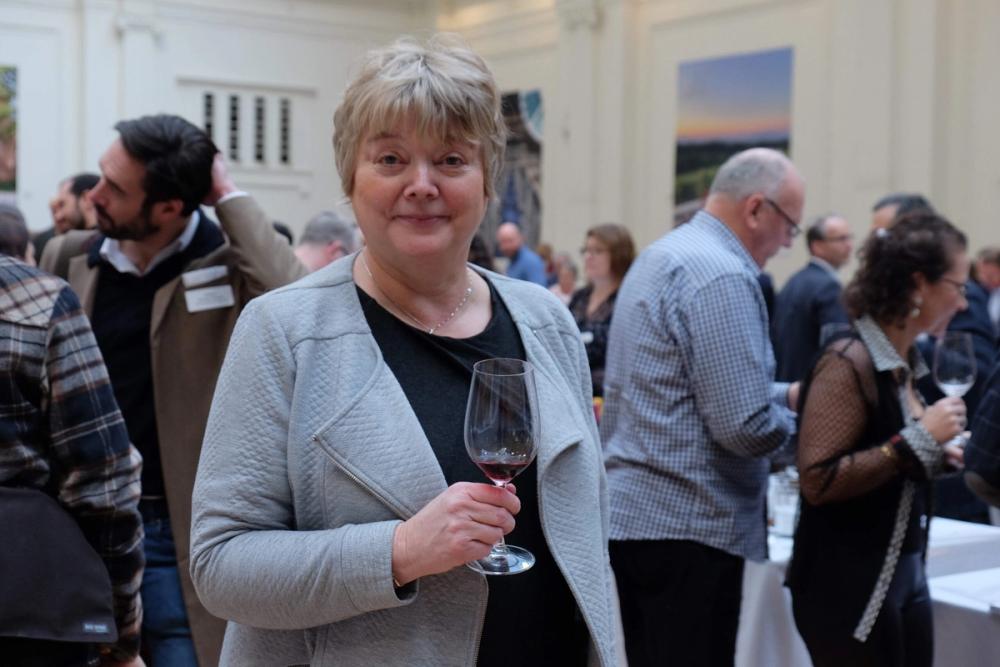
Beverly Tabbron MW says far more of her and her team’s role is to work with its producers on far more of a partnership basis to drive sustainability through its supply chain
For example, it has taken the various organic accreditations there are around the world and applied some measures of its own.
To work, however, this has to be a continuously evolving programme, with new standards set and constant appraisals of its supply chain. “It’s a lot of work,” says Bewes and has to be done in a way that keeps its producers and suppliers “on board” and does not come across at all as being “Big Brother” or “preachy”.
But hopefully its supply base sees it as “going on a journey together” and these are standards that are other markets will be demanding and looking for as well.
Commercial reality
“The commercial reality is our customers look for these sort of credentials and it is only going to get more demanding,” he adds.
It is also going to be the way forward for those producers that want to work with a specialist national wine distributor – of which there are now not that many to choose from, he claims.
Distributors of the scale and position of Hallgarten in the market that are in the favourable position of picking and choosing who they work with.
“We don’t want to be too dictatorial. but we are clear about what we want from our producers. We want a full partnership, we need their help in the market and hopefully they need our help in building their names and distribution,” he explains. “We like to find people who are like minded and the fact so many of our producers stay with us for so long is testimony to that.”
Diversity challenge
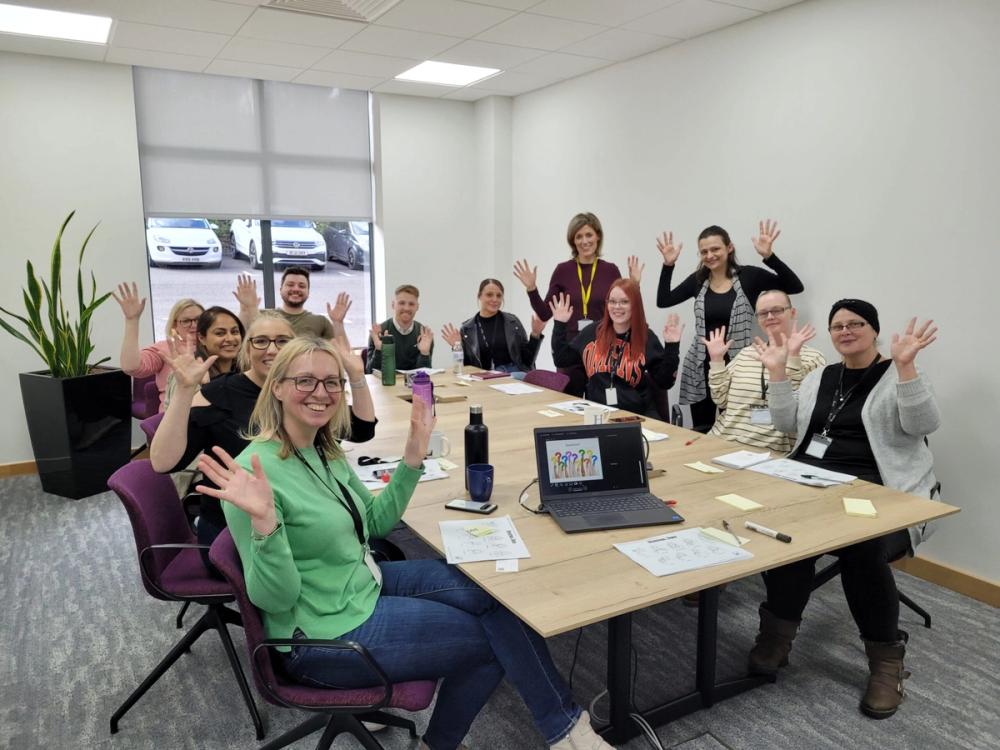
Hallgarten is working hard to make the business more diverse and inclusive in terms of the people it hires and the producers it works with. Pictured are members of the Hallgarten team going through sign language training
Bewes is also open to the fact Hallgarten is no different to any other major wine business in that it needs to do more to improve its own diversity, be it within its own teams, and also the work its producers are doing to be more diverse and inclusive.
“We have broadened the field as far as we can to make sure that we have as diverse a shortlist, or long list, as possible whether that’s looking for new members to the team, or looking for new suppliers. Their approach to diversity and the environment is important to us. We are increasingly exacting.”
Whilst there may not be an overall sustainability model, or controlling agency, to work with Hallgarten is able to call on the expertise of organisations such as Investors in People and ISO (International Organisation for Standardisation) to ensure it is building the right sort of frameworks to base its sustainability strategy on. “All of which helps to contain and control all of this as it is massive.”
Key to which is having project leaders and teams to work on specific aspects of its sustainability strategy. “It only takes two to three people with a real zest and focus on any particular issue to drive it,” he explains. “That’s also good for development and broadening people’s horizons.”
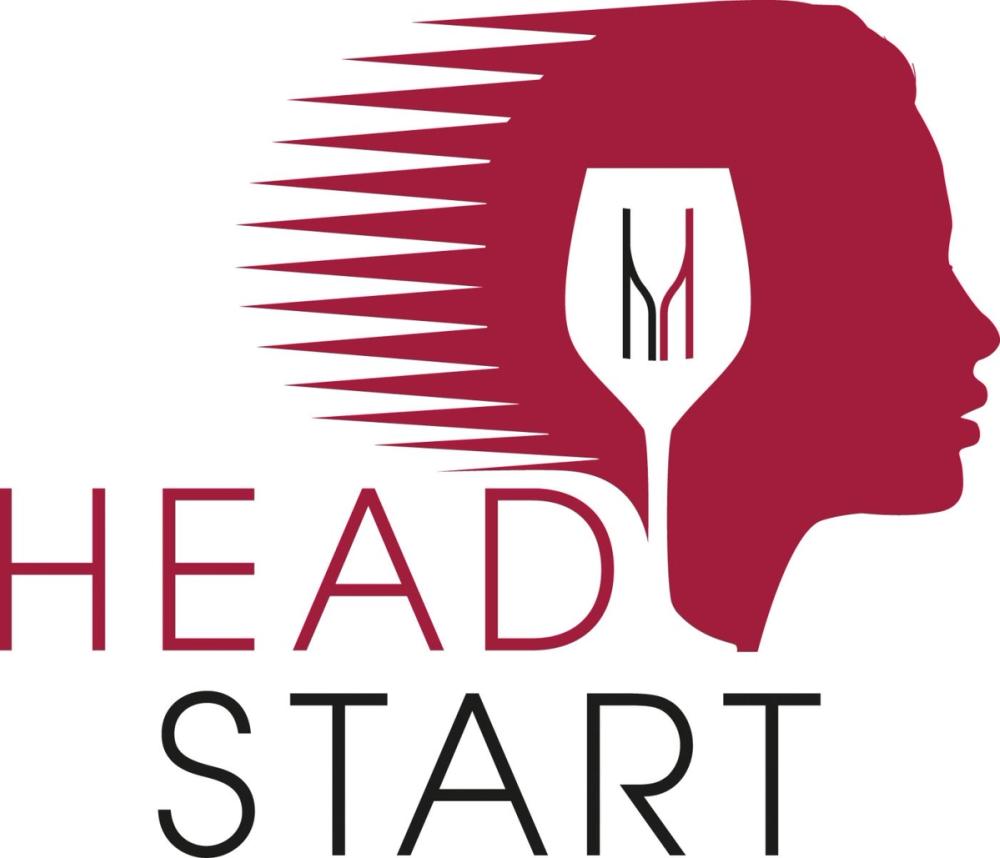
Headstart: Hallgarten’s new apprenticeship scheme
It has also introduced an 18 month apprentice scheme, HeadStart, to bring new talent into the business who have the chance to work across all areas of the business to get a full understanding of how it works. A scheme that is close to Bewes’ heart is he himself joined the wine industry via an apprentice scheme.
Driving team spirit
Within the Hallgarten business steps have been taken to create an open and collaborative spirit where all members of staff have the chance to suggest new ideas for the company to follow, be it raising money for particular charities, supporting causes such as Pride of Luton, having regular team lunches and times where members of staff can come together and enjoy quality time together.
Tabbron says having the chance, for example, to take team members who are not directly involved in handing, selling and tasting wine to go out and visit English wineries so that they can walk around in the vineyard and get to see how wine is made has been invaluable.
Introducing a profit share scheme five years ago has certainly helped take that genuine team spirit to another level.
“It’s generous scheme from our shareholders and brings everyone together,” says Bewes.
Backed up by having a monthly company digital newsletter, The Epicurean, that includes share profit updates, revenue and sales figures, customers won, days in the life of members of staff, to help share a company culture, says Tabbron. “It’s a really good read and does have that inclusivity.”
All of which might be small elements on their own, but all add up to a powerful collective change in culture. It’s what Bewes refers to as the “Brailsford approach” from the award winning Sky cycling team that was all about the huge gains you can achieve by talking lots of small steps – or in his case 1% difference in 10 areas “is how you set yourselves apart”.
“Inclusion can mean many things, but a major goal has been to involve people more so that everyone feels they can make a difference,” he adds, including inviting all members of staff to come and personally suggest recommendations and changes, big or small, to the way the business works. “It’s really good for people to be able to come in and say what they want.”
“Most issues across businesses and between business is about communication and getting that wrong is so easy and we work pretty hard at getting it right.”
Bringing focus
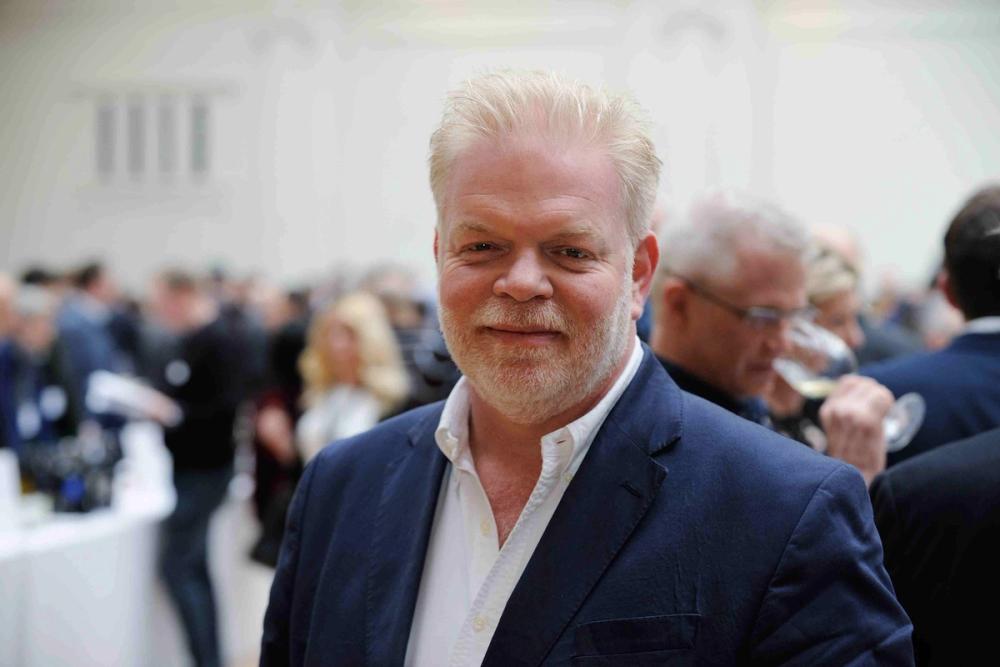
Andrew Bewes has been leading Hallgarten for over 14 years and brought what he hopes is a real focus on what it needs to concentrate on and be best in class at
Not that Bewes was necessarily introducing Sky cycling methodology when he first joined Hallgarten some 14 years ago. Looking back, he says, his immediate challenge was to bring “focus” to a business that had, at the time, been around for 76 years.
“When I joined Hallgarten we had an amazing reputation, but I think we were trying to please everyone all the time and we sort of knew where we wanted to go, but were not quite sure how to get there. I guess we have reformed, or re-thought, most areas of the business since then.”
From a corporate point of view it has gone from being a company where decisions were being made by one or two people, to a business that has a full management team “and the business runs itself.”
He says that process “did not happen overnight” and it “did not happen by accident”.
A change in business and management approach that has resulted in a far more focused wine offer and portfolio for its customers to choose from, he claims.
“We will probably have to become even more focused,” he adds, as it concentrates its sights on what it sees as being the top 10% of the overall 100,000 outlets that make up the UK on-trade sector (down from around 120,000 when he first joined Hallgarten) and the strength of the specialist wine merchant market.
It is those top 10% where he believes its portfolio and its sales and development teams “can bring something to the party”.
It’s also where the skill and experience of its senior wine buying team, headed up by Tabbron and Steve Daniel, can really make a difference by having wines in its range than can offer real value at all key competitive price points from entry level “bread and butter wines” upwards.
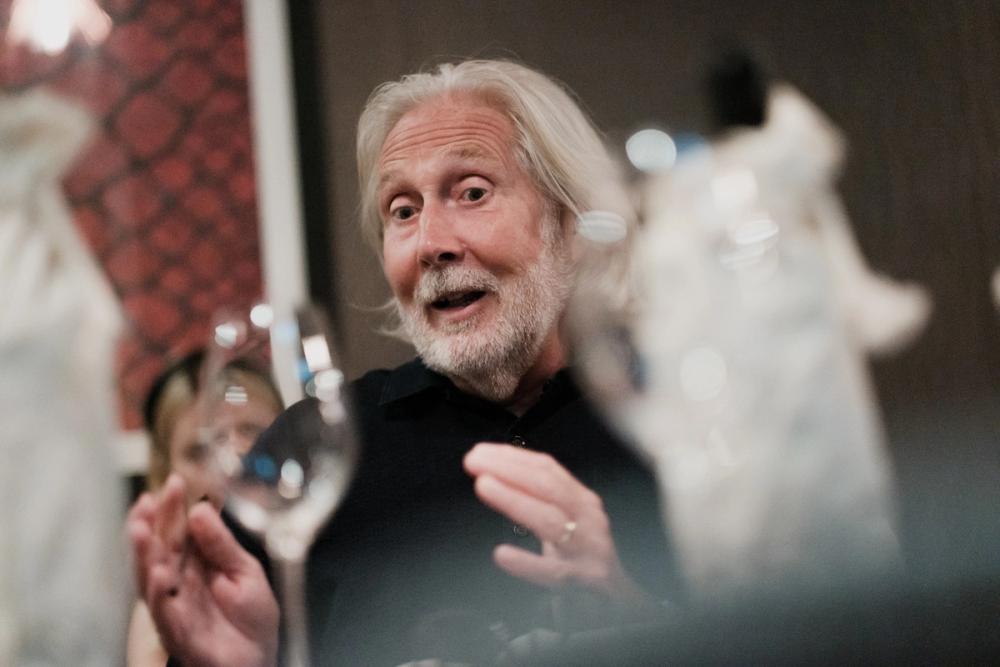
Hallgarten’s head of buying Steve Daniels has helped shape and drive much of Hallgarten’s wine offer, particularly how it has championed and sourced wines from off the beaten track in Greece and other areas of the Mediterranean
A range that, Tabbron says, has been hugely enhanced by Steve Daniel coming into the business when Hallgarten took on Novum Wines. Through Daniel it now arguably, she says, has a Greek range second to none in the country, plus many other exciting wines from emerging and dynamic regions, particularly across the Mediterranean.
“It has opened up a lot of our sales teams eyes to be more adventurous in their offerings to customers,” she says. “We now have Armenia, Georgia, Japan and all those sort of things and are following all those trends and that won’t stop.”
“We are now arguably helping to set the trend as well,” adds Bewes.
Long standing team
Having such a long standing and respected senior team is another Hallgarten selling point where there are a number of people with 15, 20 and over 25 years service.
Tabbron leads the way with her 45 years of service, but is quick to stress that whilst she might have been with the same company for all that time, but it has changed numerous times over the years and is, arguably, unrecognisable to even the business that Bewes joined 14 years ago.
“I have seen several incarnations of the company and it has been great to see so many evolutions along the way,” she says, and is delighted to be working with the sons, daughters and even grandchildren of the producers she initially started out with.
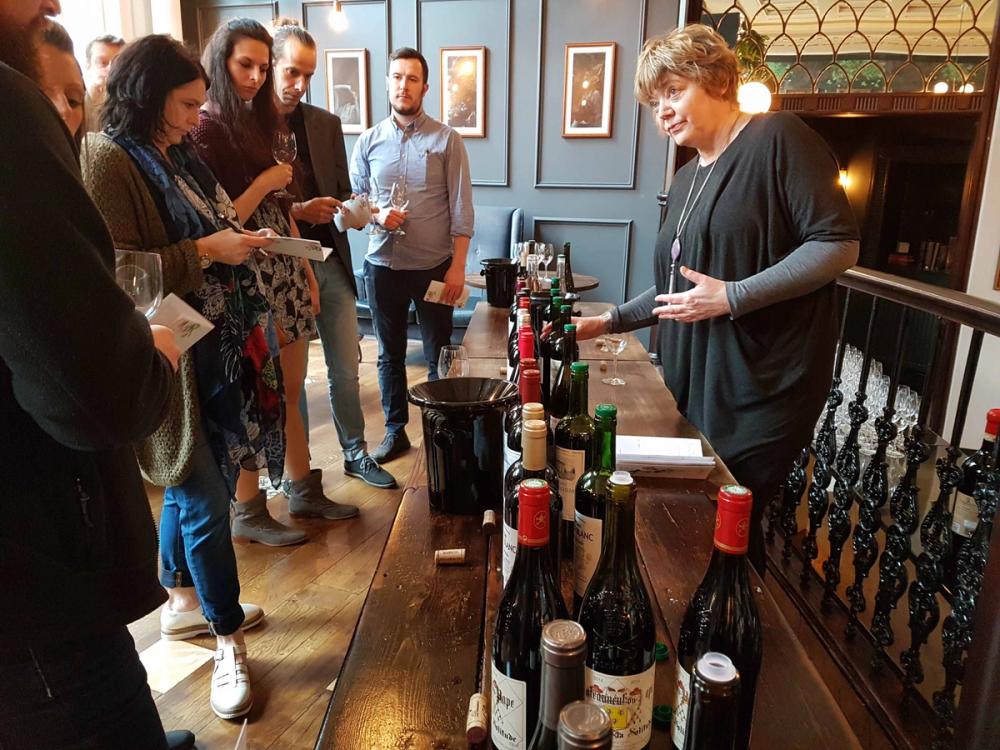
Beverly Tabbron MW has seen the business evolve and grow throughout her long career with the business
Tabbron says she initially joined the business as a personal assistant to the sales director and only applied as she thought it would be a good way to make the most of the German she had learnt whilst doing her degree at university – Hallgarten was, after all, then known as Pieroth, and was very much dominated by German wines in keeping with its original founder, Fritz Hallgarten, who came to the UK from Germany in 1933
Over the years she has seen Hallgarten open up like a flower to wines from all over the world and the fact it has such an exciting and diverse portfolio, as well as having all the classics, was a key reason why it has been able to win “all these accolades this year”.
Customer perception
So what perception do Bewes and Tabbron, hope, and think, its customers now have about Hallgarten?
That all depends, says Bewes, on which side of its customer base you talk to. There are those customers who are working with Hallgarten, but also have multiple suppliers to make up their range – which is around 20% of its customers. Then there are the bulk of customers who rely on Hallgarten for the majority, if not all the range, and therefore lean on Hallgarten and take far more advantage of its extra services like wine list reviews, menu designs and staff training.
“We loosely divide our customers into those who make wine decisions, which includes all the independent merchant sector, sommeliers and top end restaurants who work with multiple suppliers. For them it is about making their lives easy, the right information, managing allocations and practicalities. They want to work with people who make it really easy to buy.
“Then there is the 80% to 75% of our customers who are looking for more of a business relationship, particularly outside of London, where we will supply 100% of they wine list and they need that curated approach and they are often multi-tasking business people rather than wine connoisseurs, slash enthusiasts. They are also looking for easy transactions and a complete service,” explains Bewes.
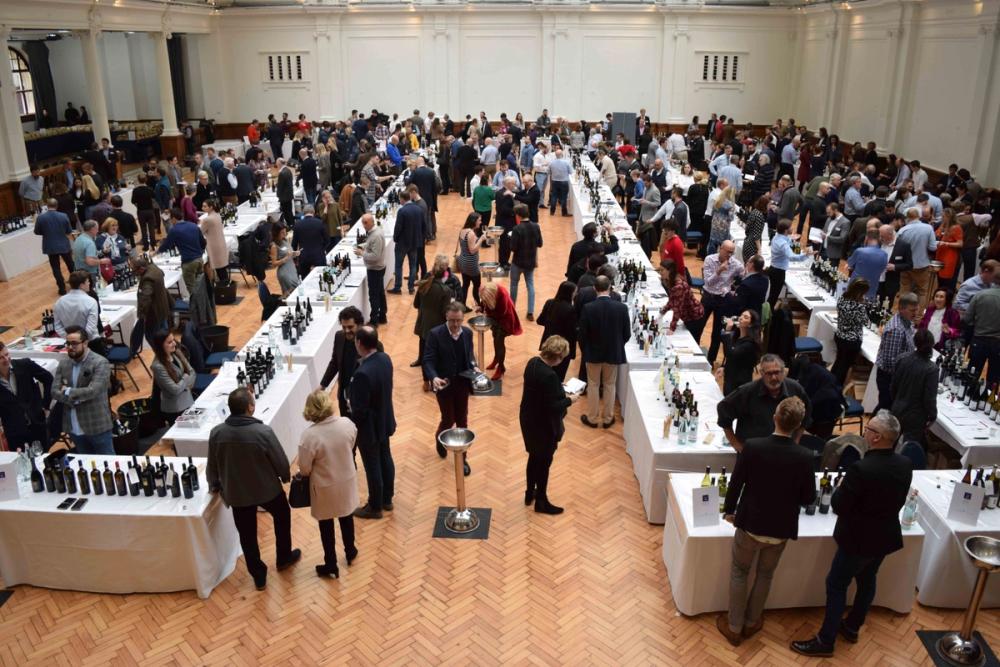
Hallgarten has a wide number of customers across the UK split between those who rely on the business for the majority of their wines and those that are looking to cherry pick what appeals to them from its wide selection
But there is one factor that “binds” all customers together and that is “doing what you are say you are going to do”. “If you say you are going to deliver tomorrow then make sure you do.”
Getting those basics right is “fundamentally” what a customer will judge you on, he stresses.
It is an area all suppliers struggled to meet with the major global international shipping crisis during and following Covid and “we probably had as many out of stocks as our competitors and we all faced that”.
“The only way round that was to start again, get back on top of things so that we could go back to our normal modus operandi of minute control of our systems,” he adds – and a goal of no out of stocks.
The duty factor
One area that is out of every drinks company’s control is alcohol duty and what the government’s latest policy is. The industry is currently still coming to terms with the arrival of new duty bands from August 1, that has forced some wine prices up by at least 50p a bottle, and the threat of the proposed duty escalator from February 2025 with different duty rates for every 0.5% abv of alcohol above 11.5%.
Bewes is quite clear: “The duty change is a game changer and it’s only half way house at the moment and that is a black cloud hanging out of the industry.”
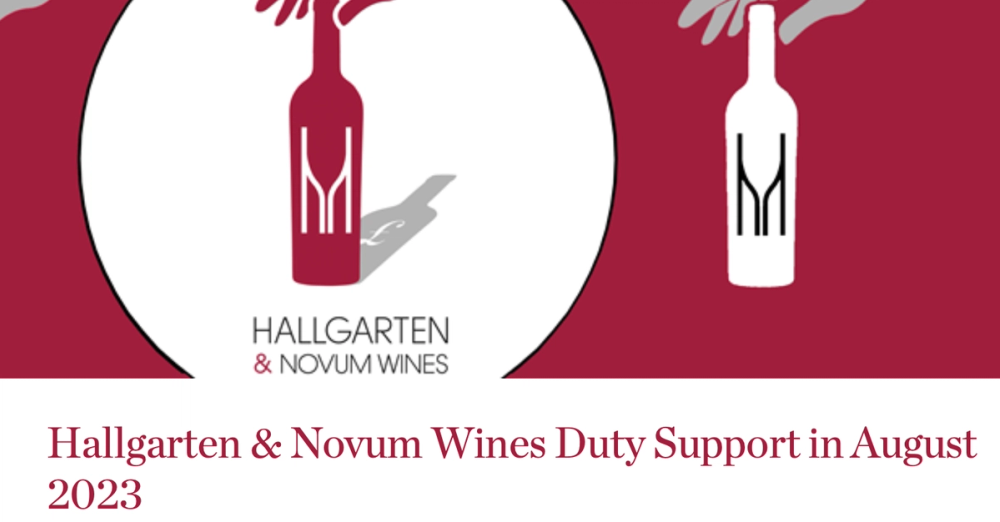
He says it made the move in August to hold prices on a core 150 plus wines in order to help both its customers come to terms with the new rates, but to also ensure that as a business it was also on top of handling the changes from a practical and strategic point of view.
“It was the first time we had done something like that, and we did it for very pragmatic reasons. It was to help our customers get through August and then look to change their lists [some 600 to 700 ones] in September when they have more time and we have got less people on holiday and we could fully support them,” he explains.
It is now talking to producers in key parts of the world about whether they are able to drop alcohol levels to help comply with the changes – where wines below 11.5% now pay considerably less duty, but only if it can find what Bewes calls “drinkable, quality driven alternatives” at around the 9-11% abv level. “There are areas where we can make a difference and I am very comfortable at going to 9.5%, or even 8.5% abv.”
But unless there is a change in policy Bewes says “we are going to see very different wine lists” from February 2025 with particular pressure on red wines at 14% and above.
It will ultimately result in the “breaking of price barriers” for a lot of wines, particularly reds wine operating in the key £25 to £40 price area. “We have got under a year to have the right range in place by February 2025, so we need to start thinking now,” he explains.
It also a duty to his customers that still want to sell wines around the £30 mark, to find possible solutions and alternatives to what might currently be on their list. So a straight Argentine Malbec, for example, might need to become a Malbec blend to help bring the alcohol down.
Bewes says it is also an “opportunity” for their producers to think about what they can do and what wines and solutions they can offer. “I am an eternal optimist. It will shake things up a bit and allow opportunities as well for producers to jump in, say, at that Malbec slot at £28 in a fast moving restaurant.”
Tabbron believes that is where the true, strong partnerships it has with its producers can really come to the fore. “That is the most important thing. To have producers that you can work with who can be flexible and look at different styles and grape varieties and think laterally. It’s about working together.”
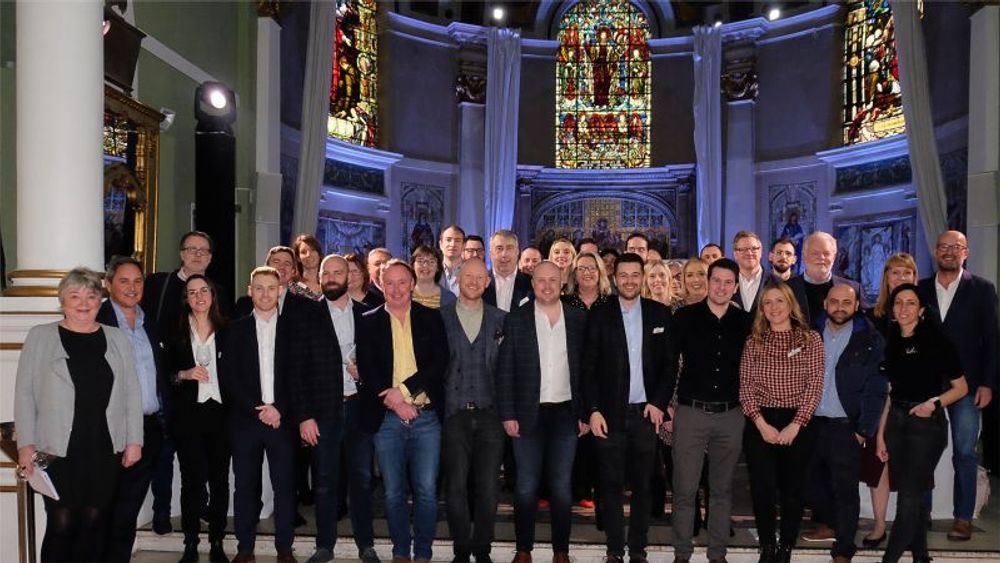
The Hallgarten team have had a lot to celebrate in 2023 picking up three major industry awards for distributor of the year
The jury is out
It’s also hard to determine what long term impact there is going to be, adds Bewes, for sales seemingly across the board in the trade have been well down in September after a particularly strong first half of the year – where Hallgarten was reporting record sales in May, June, July and August – and it will probably not be until October and November sales figures are in that there will be a clearer idea of what impact there has been.
Whether that is down to duty increases or a reaction to post holiday cuts in spending and feeling the pinch from the economic downturn “the jury is out on that,” he says.
But either way the changes in duty come on the back of already big head winds across the sector, be it major staff shortages, particularly in the on-trade and increased energy, business rates.
He says he is also surprised by the “remarkable lack of awareness” about the duty changes amongst its customers and across the trade.
In terms of overall conditions Bewes says the top end of the market is still “very resilient” and local trade is doing well, but “there is a classic squeeze in the middle where people are going out once a month, rather than two to three times”.
It also remains an industry that is ever in flux and the pressure on its major suppliers to stand up deliver, and support the sector’s key trading channels, across the on and off-trades has never been greater.
Or as Bewes succinctly says: “We have to work even harder to make life as easy as possible for all our customers.”
- You can read more about Hallgarten & Novum Wines at its website here.
- Hallgarten is a commercial partner of The Buyer.
